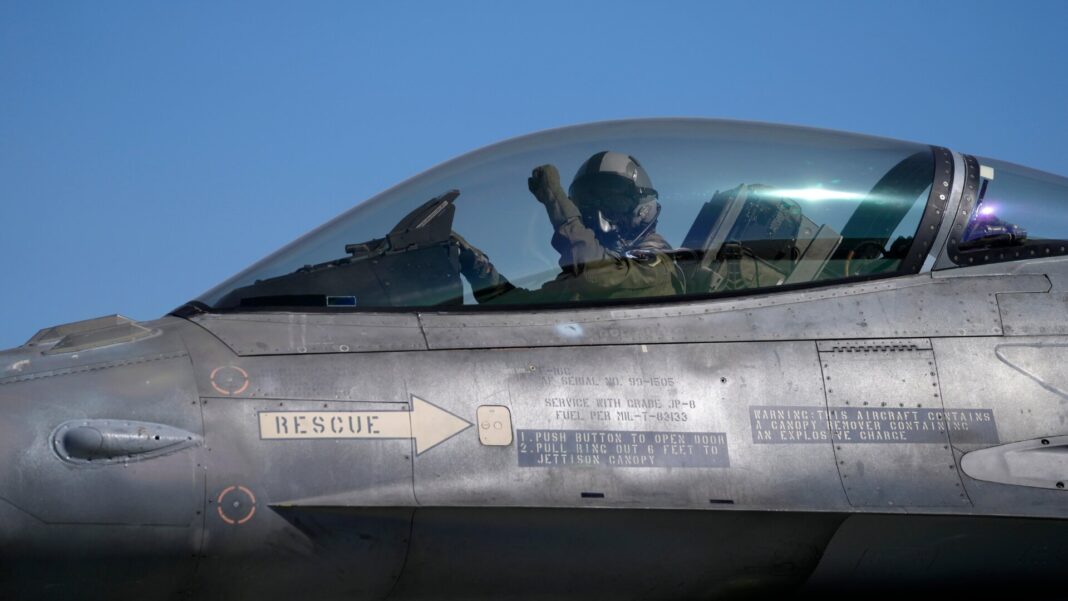A new study investigates whether F16 fighter pilots demonstrate brain connectivity changes that could be expected in astronauts, based on similar exposure to changes in g-forces. The study found that the pilots showed key changes in brain connectivity and they may function as suitable test subjects to learn more about space travel.
One cannot explore the profound mysteries of space without being changed by it. This is the message underlying a new study in Frontiers in Physiology.
The study examined the brains of F16 fighter pilots, which have a lot in common with those of astronauts in terms of adapting to altered gravity levels and rapidly processing conflicting sensory information. MRI scans revealed that pilots with more flight experience showed specific brain connectivity patterns in areas related to processing sensorimotor information. They also showed differences in brain connectivity compared with non-pilots. The study will help us to understand the effects of space flight on the brain and may aid in providing better training programs for pilots or astronauts.
Spaceships: a rollercoaster for the brain
Blasting off into space places significant demands on the body and mind. These include altered levels of gravity, from the g-forces present during blast-off to the low-gravity environment in space. Other issues include rapidly interpreting sensory and visual stimuli that are sometimes conflicting, while controlling a complex vehicle at extreme speeds.
A pilot study
Given that astronauts are a rare commodity, the researchers behind the current study hypothesized that studying the brain in members of a somewhat similar profession may provide the answers they need. “Fighter pilots have some interesting similarities with astronauts, such as exposure to altered g-levels, and the need to interpret visual information and information coming from head movements and acceleration (vestibular information),” said Prof Floris Wuyts of the University of Antwerp, senior author on the study. “By establishing the specific brain connectivity characteristics of fighter pilots, we can gain more insight into the condition of astronauts after spaceflight.”
To investigate this, the researchers recruited 10 fighter jet pilots from the Belgian Air Force, alongside a control group of 10 non-pilots, and performed MRI scans of their brains to establish the first ever study of functional brain connectivity in fighter pilots.
Adapting to extreme demands
Interestingly, the researchers found differences in brain connectivity between experienced and less experienced pilots, suggesting that brain changes occur with an increased number of flight hours. These differences included less connectivity in certain areas of the brain processing sensorimotor information, which may indicate the brain adapting to cope with the extreme conditions experienced during flight.
Experienced pilots also demonstrated increased connectivity in frontal areas of the brain that are likely involved in the cognitive demands of flying a complicated jet. When comparing pilots and non-pilots, the researchers found that areas of the brain processing vestibular and visual information were more connected in pilots. This may reflect the requirements for pilots to cope with processing multiple and occasionally conflicting visual and vestibular stimuli at once and to prioritize the most important stimuli, such as reading cockpit instruments.
“By demonstrating that vestibular and visual information is processed differently in pilots compared to non-pilots, we can recommend that pilots are a suitable study group to gain more insight into the brain’s adaptations toward unusual gravitational environments, such as during spaceflight,” said Dr Wilhelmina Radstake, first author on the study who conducted a Master’s thesis on this topic in Prof Wuyt’s lab.
More: Astronauts Can Suffer a Decade of Bone Loss During Months in Space, New Research Suggests





